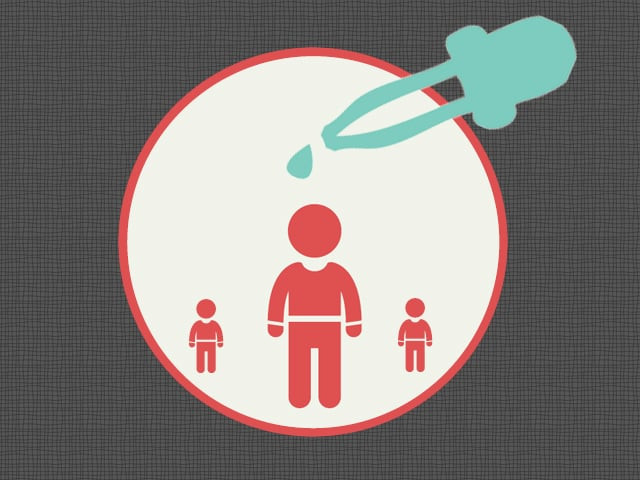Polio: Taliban ban, inaccessibility to certain areas cause of 85% cases
If a campaign is not carried out in the next two weeks, there is a risk of a polio outbreak in Peshawar.

Most of these reasons are interrelated. PHOTO: FILE
Bans by Taliban leaders and a lack of access to certain areas have made it near impossible to make the country polio-free, especially in an absence of a top-down strategy.
Information shared with The Express Tribune reflects 17 of 20 or 85% of polio cases reported across the country were due to the above-mentioned reasons, especially in Khyber-Pakhtunkhwa (K-P) and the Federally Administered Tribal Areas (Fata).

Most of these reasons are interrelated. Between conspiracies about foreign interests aiming to sterilise men to the Taliban conditioning the lifting of the ban with the end of drone strikes, areas become riskier for polio teams and parents become more difficult to convince.
The targeted attacks on polio teams in different parts of the country especially K-P has hampered the polio drive. "If you go out, they (terrorists) target you, if you miss children, the virus targets you; it's simply a catch-22 situation for the polio programme in the province," stated an official of the polio programme, adding that the absence of awareness campaigns was adding to the severity of the problem.
The government on the other hand has been very lax in coming up with a strategy which identifies polio as a serious national problem – a pandemic waiting to happen. After the unabated assaults on workers, whatever plans are made by the government are kept secretive.
One of the lesser-known facts of polio campaigns is the paltry sum paid to the workers who take on high-risk jobs with a known mortality rate. Most are vaccinators receiving only Rs500 per day during the campaign.
Giving it the star treatment
Famous cricketer Shahid Afridi was declared a ‘Polio Champion’ in a bid to convince parents to give their children a vaccine that prevents them from contracting life-long paralysis. However, the campaign did not run in K-P and Fata for reasons best understood by the authorities.
“We had the services of Afridi on a voluntarily basis and recorded all desired messages to help eradicate polio from the country. Taking the campaign to the public is the responsibility of the district government – we just provide the messages,” UNICEF spokesperson Azmat Abbas told The Express Tribune.
He added a meeting was recently held in Islamabad which was attended by Maulana Tayyab from Swabi and Maulana Samiul Haq of the Darul Uloom Haqqania. The two men suggested there should be committees comprising ulema on district and provincial levels to help remove baseless propaganda against polio vaccinations.
On Saturday, 12-month-old Uzair Muhammad was reported to have contracted polio in Peshawar, the first case in six years. The virus has been reportedly found in the sewerage water in the city, and despite warnings by the World Health Organisation (WHO) of the risks, the government has yet to take any action.
Shaheen Muslim Town, which according to the WHO carries the most risk of spreading the disease, was the site of infection for the case. Uzair had not received a single oral polio vaccine because teams had missed the house in the densely-populated area. If a campaign is not carried out in the next two weeks, there is a risk of a polio outbreak in Peshawar.
This was the fifth polio case reported from K-P. There have been 12 in Fata so far. Earlier on Friday, a child was reported to have contracted the virus in Khyber Agency, taking the agency’s total to eight over the last six weeks.
Published in The Express Tribune, July 15th, 2013.













COMMENTS
Comments are moderated and generally will be posted if they are on-topic and not abusive.
For more information, please see our Comments FAQ